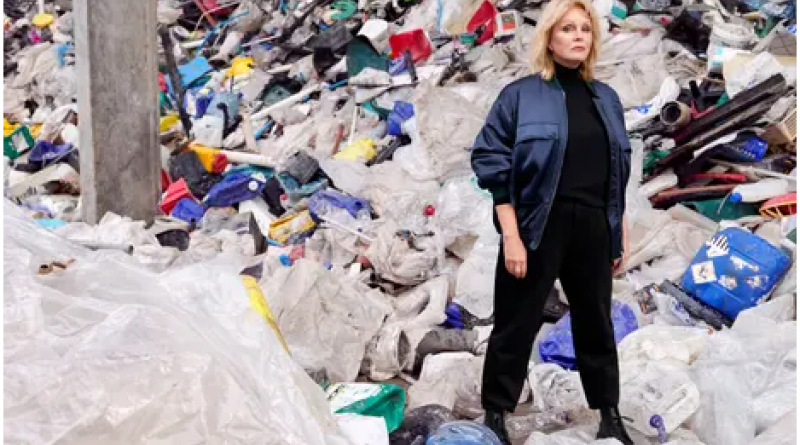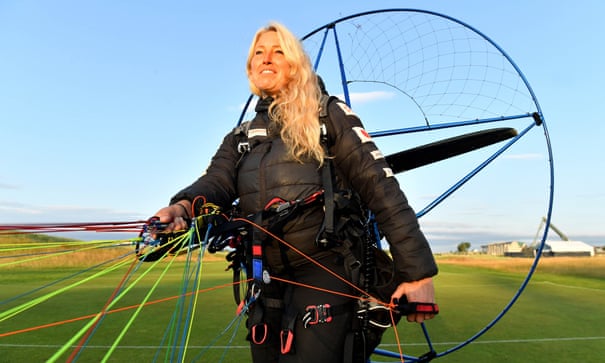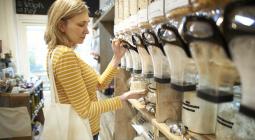Joanna Lumley says wartime-style rationing could help solve climate crisis

Actor proposes system under which people would have limited points to spend on holidays and luxury items.
Joanna Lumley has suggested that a system of rationing similar to that seen during wartime, under which people would have a limited number of points to spend on holidays or lavish consumer goods, could eventually help to tackle the climate crisis.
The Absolutely Fabulous actor, who has long campaigned against single-use plastic, said legislation could be the only way to curb the amount of waste produced by the public. “These are tough times, and I think there’s got to be legislation,” she told the Radio Times.
“That was how the war was – stuff was rationed – and at some stage I think we might have to go back to some kind of system of rationing, where you’re given a certain number of points and it’s up to you how to spend them, whether it’s buying a bottle of whisky or flying in an aeroplane.”
Lumley, who has been involved in conservation work, said that while many people remained poor, it was largely “the western world that stuffs its face and chucks stuff away”.
“Perhaps people have got to think a bit harder,” she said. “Maybe more of our holidays should be at home or taking trains, and not hopping on a plane to Magaluf for the weekend … Every plastic bottle you don’t buy, every piece of litter you pick up, every piece of meat you don’t eat, every small thing counts.”
Her comments come a week after Boris Johnson promised that transitioning to net zero could happen without sacrificing the things people love, claiming in a foreword to the government’s net zero strategy that technology would allow “guilt-free” flight by 2050.
While green taxes risk hitting the least affluent the hardest, rationing is seen by some as a fair and universal way to limit consumption. Critics, however, say it sacrifices economic growth.
As far back as 2006, the then environment secretary, David Miliband, argued that each citizen should be issued with a carbon “credit card” – to be swiped every time they bought petrol, paid an energy utility bill or booked a plane ticket – under a nationwide rationing scheme.
The historian Mark Roodhouse wrote in 2007 that rationing would be more effective than a carbon tax if governments needed “to reduce carbon emissions quickly and dramatically”.
In a new documentary on ITV next week, Lumley travels around the UK following the adventurer Sacha Dench – known as “the human swan” – as she attempts an epic 3,000-mile journey around the British coast in an electric paramotor.

According to ITV, the pair “meet environmental heroes along the way who show them surprising and fascinating ways to live more planet-friendly lives”.
But in September, just days from her journey’s end, Dench and her support pilot and photographer Dan Burton, who was flying a conventional paramotor, collided in mid-air over the western Highlands.
Burton, 54, a father of two from Devon, died, and Dench, 46, was seriously injured and remains in hospital. Lumley was not filming with them at the time.
“The shock was so vivid because it seemed such a short time since I’d been with them both,” Lumley told the Radio Times, explaining that the news reached her while she was working on a separate project in Berlin. “I couldn’t believe Dan would be [with us] no more … Dan’s family bravely insisted we complete the film, and Sacha sent a message, despite her critical injuries, saying: ‘Get the film finished.’ I was terribly moved.”
The resulting documentary, Joanna Lumley and the Human Swan, airs on ITV on 1 November and will be dedicated to Burton.
26 October 2021
The Guardian




